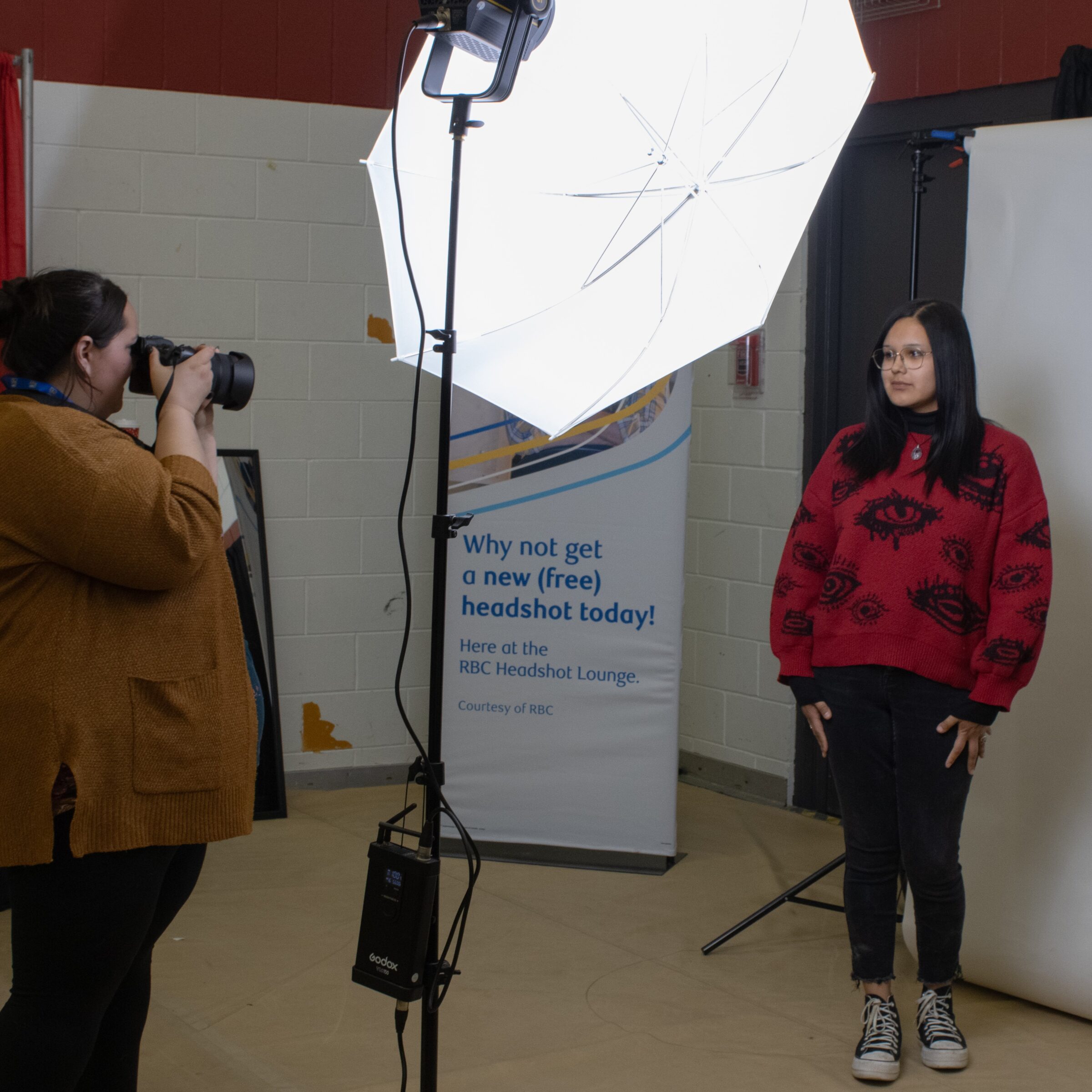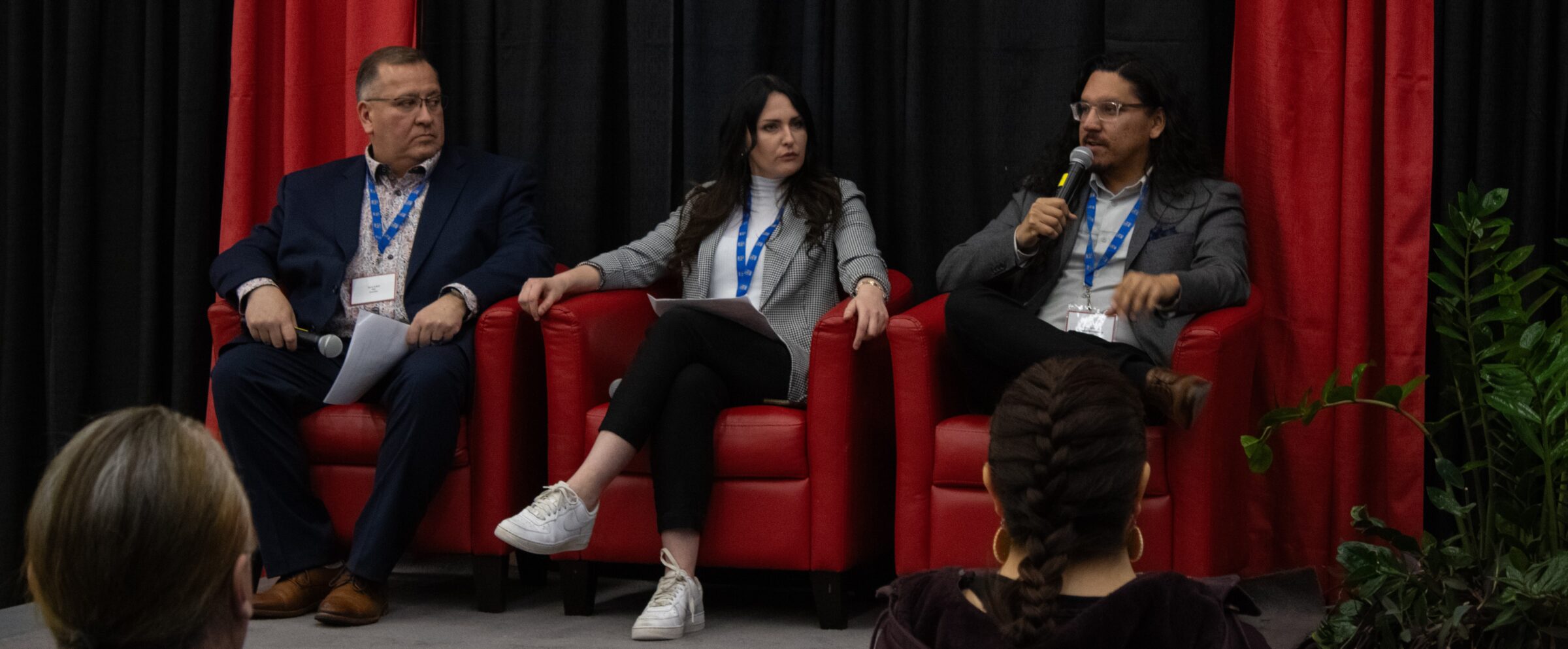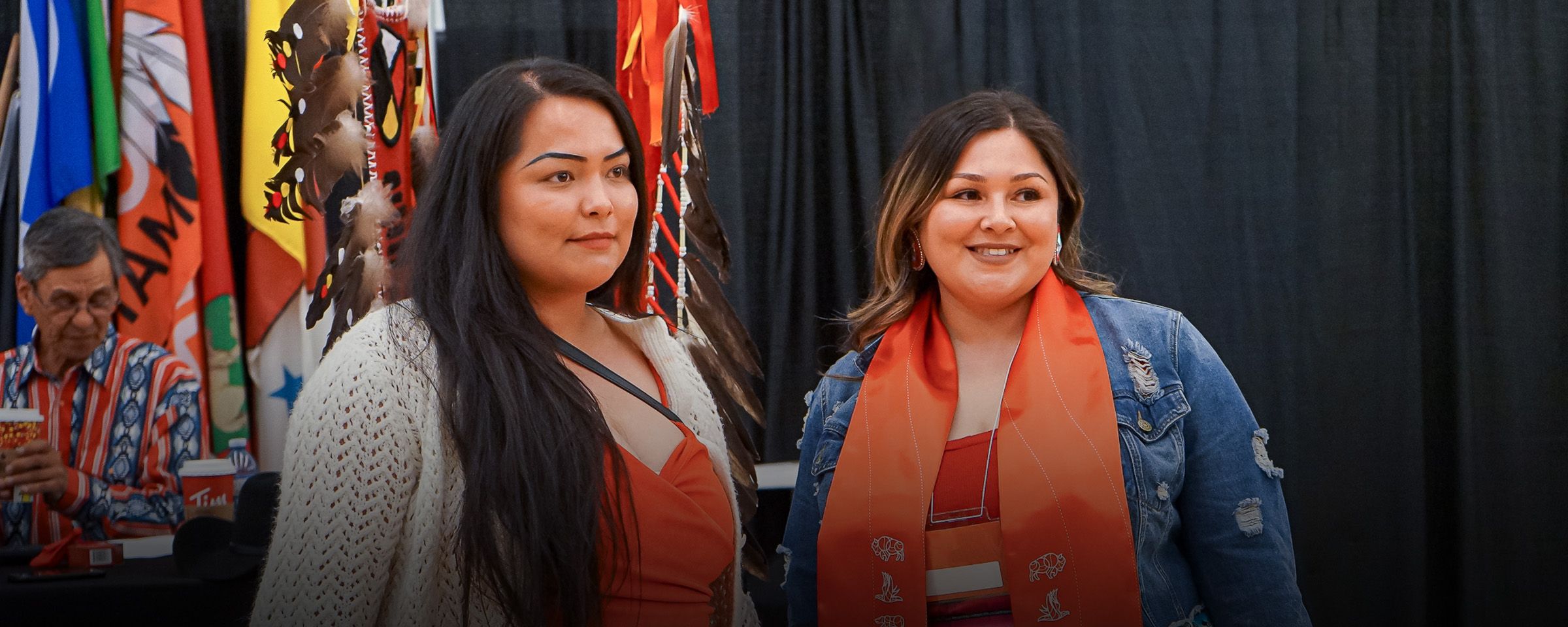RBC supports Indigenous Employment at the 2024 Indigenous Career Fair
Thanks to RBC’s generous support for student-focused events, this year’s third and final RBC Reaction by Collision event of the academic year was designed to meet the needs of Indigenous students at RRC Polytech. Each year, RBC supports three Reaction by Collision events, with one specifically dedicated to Indigenous students. The Indigenous Career Fair took place on March 21 in the North Gym at Notre Dame Campus, which welcomed hundreds of students from across the College.
Over thirty employers were invited with specific job openings and opportunities for students to explore and consider for their future careers and to evaluate what the job market looks like in the current economic landscape. Students had access to the RBC Headshot Lounge, where they could take professional headshot portraits for their LinkedIn profiles and other professional bios.
Valeri Kelly, a Nursing student, says the Indigenous Career Fair was a great opportunity to network with employers and create connections for her future career, even though she’s a second-year student that wasn’t necessarily looking to be employed at the moment. She said she had plenty of opportunities to share her resume and LinkedIn with interested employers.
“One that really stood out to me was Naawi-Oodena; it wasn’t specifically for any healthcare-related jobs, but part of what they’re recruiting for is to fill the space at the new friendship centre. It was really cool, because there could be an opportunity to have a health clinic there, which I could be part of once I become a nurse practitioner,” said Kelly.
Having spaces that are culturally-inclusive to engage Indigenous employees is important for the success of Indigenous people not just professionally, but personally and spiritually.
Joey Laquette, a Plumbing student, is an R-Crew member that helps newer students navigate the College environment from a student-focused lens. He filtered in and out of the Indigenous Career Fair, bringing students down from the Indigenous Support Centre.
“It was good to see how well-organized it was, as that helped people navigate the booths easier. I noticed that quite a few students were a little shy to make that first connection. I encouraged students to put themselves out there, and started the conversation with some employers with them,” Laquette said.
Creating opportunities for Indigenous students is integral to enacting the College’s commitment to reconciliation. To walk the path of reconciliation is to walk alongside students and make sure they have access to the same opportunities as every other student in a way that not only accepts, but celebrates Indigenous values, cultures, and ways.
Matthew Paul, a College Transition student, says the employers he connected with made a strong effort to show him their resources and supports to engage Indigenous employees.
“A couple of them really stood out when they gave me their emails and said to contact them if I needed help – they actually went above and beyond, when they could’ve just given me a pamphlet. They even said that if I do decide to apply, to say in the application that I met them at the Career Fair so we could connect again,” said Paul.
At noon, the event kicked off with a panel discussing recruitment and retention for Indigenous employees, how each organization promotes employee engagement through cultural programming and support, and how Indigenous leadership at the executive level impacts the quality of experiences for Indigenous employees.
The panel featured Herb ZoBell, VP, Commercial Financial Services, Indigenous Markets of RBC, Clarke Garrioch, Senior Software Developer of IG Wealth Management, and Charity Lepage, Director, Technical Solutions of Canada Life.

“Whether they are new to the job market or are seasoned professionals, the success of Indigenous employees is influenced by a number of supports which leading employers should strive to provide,” said Herb ZoBell. “Access to education and training opportunities, rotational programs, a supportive cultural environment, mentorship and networking opportunities, peer supports, and awareness initiatives aimed at addressing cultural knowledge gaps and unconscious biases – these are just some of the ways RBC empowers and supports the careers of our Indigenous employees.”
The Indigenous Career Fair is an expression of the work RRC Polytech does to empower Indigenous students – and with RBC’s support, it’s an opportunity to use our platform as an educational institution to provide new, lasting, and impactful connections between Indigenous students and organizations that will benefit Indigenous students, their families and communities, and industry at large.
RBC is a proud supporter of Indigenous achievement in post-secondary education and the workforce. Every year, the RBC Reaction by Collision event series features at least one event created to offer enriched experiences for Indigenous students at RRC Polytech. In 2022, the RBC supported Indigenous Culture and Entrepreneurship and in 2023, they supported Food, Fashion and Music; both events demonstrated Indigenous talent and entrepreneurship.

RBC’s support extends beyond experiential events to actual programs offered through the School of Indigenous Education – in 2022, RBC gifted RRC Polytech with $450,000 to finance the Pathway to Information Technology Programs for the next three years, which gives students the opportunity to launch a foundational education in IT for a tuition of just $500. Pathway students have access to wraparound supports that provide mental, emotional, physical and spiritual wellness through the School of Indigenous Education. For many Indigenous students, these support systems are extremely beneficial to their academic success.


